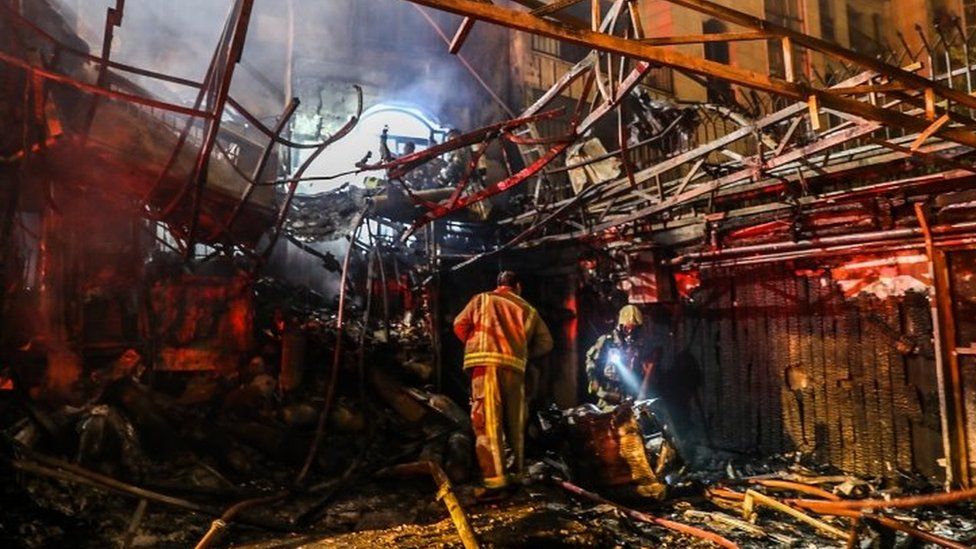Australia/Israel Review
Iran blasts expose regime’s shaky foundations
Jul 30, 2020 | Raz Zimmt

The series of unusual incidents in Iran over the past few weeks has proven again the weakness of the regime in Teheran in the face of serious challenges at home and abroad, chief among them the uncompromising diplomatic pressure of the US, its economic crisis and the coronavirus pandemic, which has so far claimed the lives of more than 11,000 Iranians.
Even though it is tempting to attribute these events to foreign sabotage, we must practice caution before grouping all these incidents into one category.
An explosion at the nuclear plant in Natanz on July 2 is not in the same category as a blast at an x-ray lab in the heart of Teheran on July 1, just as an incident at a rocket research facility in Khojir on June 25 is not the same as a wiring fault at a power station in Ahvaz on July 4.
Not every explosion or fire in Teheran is the result of foreign subterfuge; the critical condition of Iran’s infrastructure is widely known. Add to that lacklustre maintenance, negligent management and human error.
The head of Teheran’s city council lately admitted that out of 33,000 buildings categorised as unsafe following the collapse of the Plasco skyscraper during a 2017 fire that killed dozens of firefighters, only 3,000 have been sufficiently repaired to meet safety protocols.
And yet, even if all these incidents are unconnected, this unusual series of events only emphasises the lack of safety within the Islamic Republic.
There has been severe criticism on Iranian social media in recent days over the regime’s failures and its inability to guarantee the safety of buildings and infrastructure in the face of cyber or direct sabotage.
Iran’s leaders are surely very troubled by this spate of accidents, especially the ones in sensitive facilities.
External threats have forced the Islamic Republic in recent years to consolidate its fight to stamp out domestic dissent. It is fair to assume that these incidents will lead to a further ramping up of oppression against the regime’s enemies, both real and fictional.
In June, the UN’s International Atomic Energy Agency adopted a resolution, the first of its kind since 2012, criticising Iran for not letting its inspectors into sites suspected of having been part of the Islamic Republic’s nuclear program.
At the same time, the US is attempting to convince the UN Security Council to extend the arms embargo against Iran, which is set to expire in October, and has threatened to activate the clause within the nuclear agreement allowing any one of the deal’s participants to automatically reimpose all sanctions lifted as part of the deal.
Iran for its part made it clear that such a move will be answered with an “appropriate response.”
Radical wings within Iran have also pressured the Government to take more proactive steps in retaliation, starting with axing cooperation with the IAEA or even withdrawing from the Nuclear Non-Proliferation Treaty (NPT).
Even if the latest incidents cannot be connected, and even if most are not the result of sabotage, the heightened sense of alert within Iran could lead to increasingly severe actions, despite its leaders’ reluctance to do anything rash in the four months leading up to the US elections in November.
Dr. Raz Zimmt is a research fellow specialising in Iran at the Institute for National Security Studies at Tel Aviv University. © Yediot Ahronot (ynetnews.com), reprinted by permission, all rights reserved.
Tags: Iran






